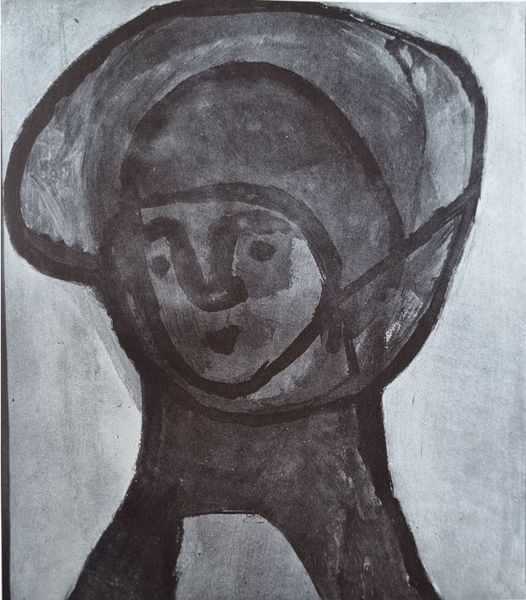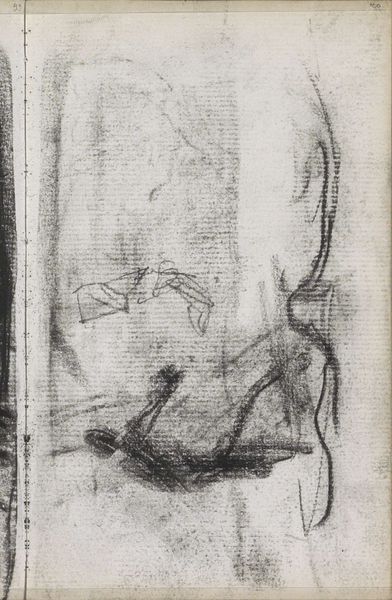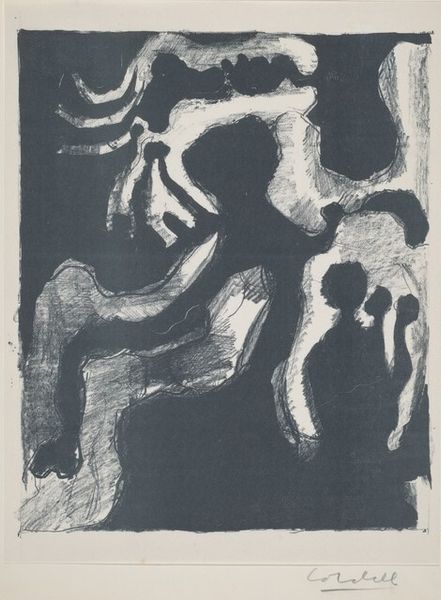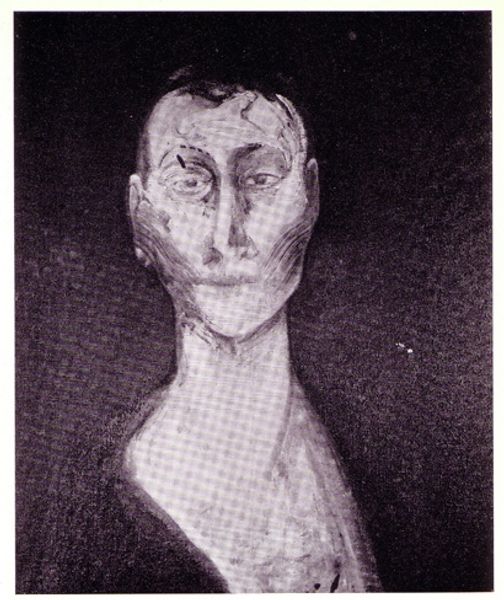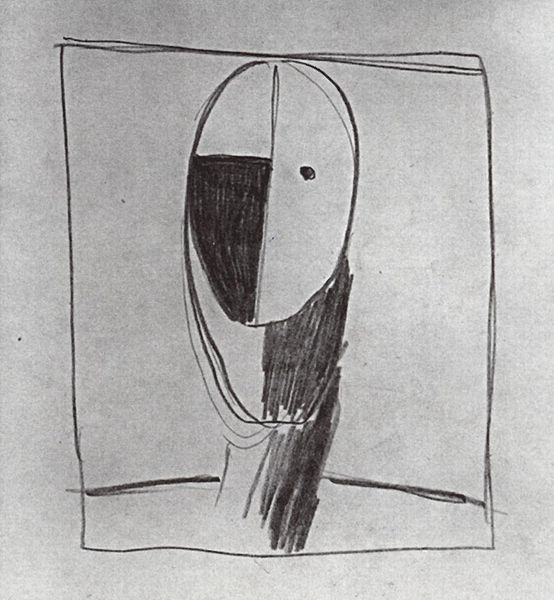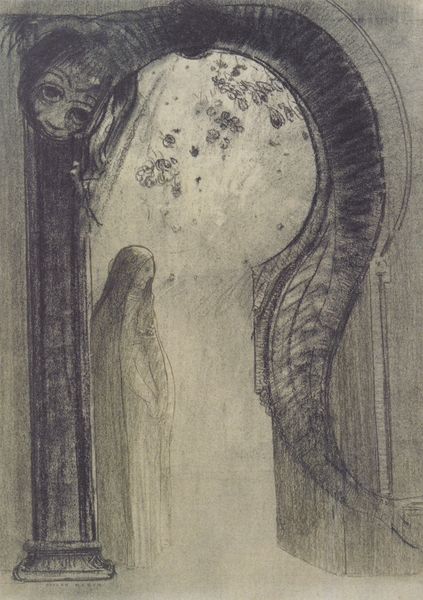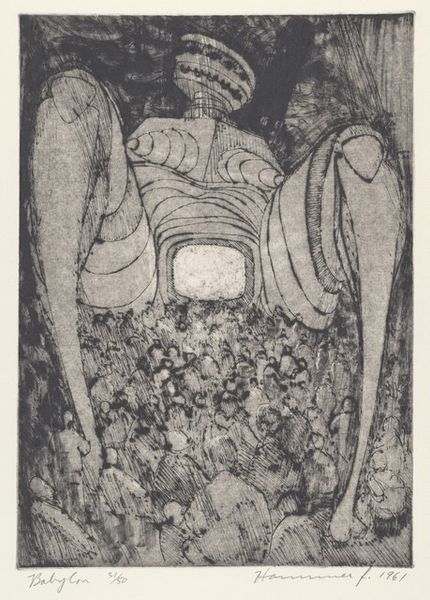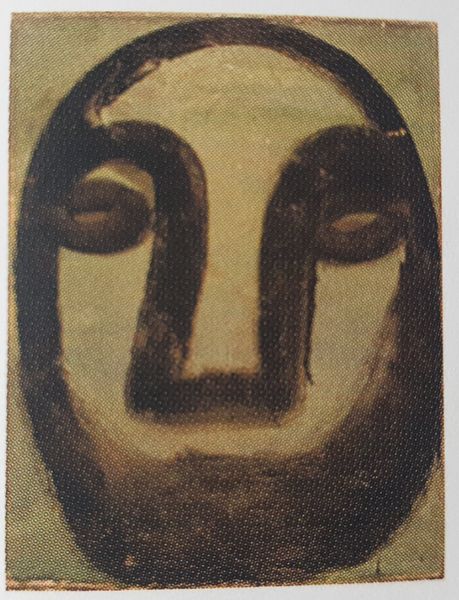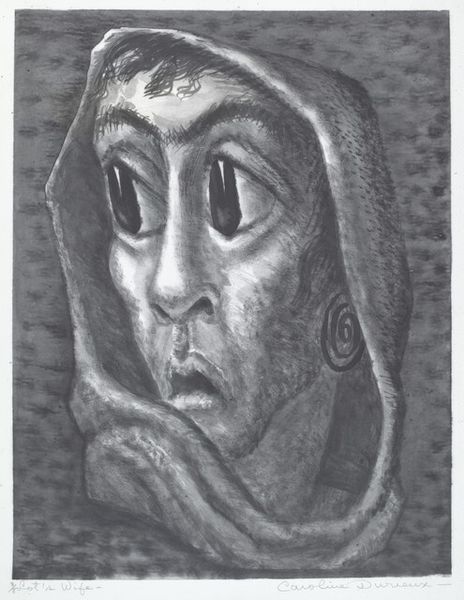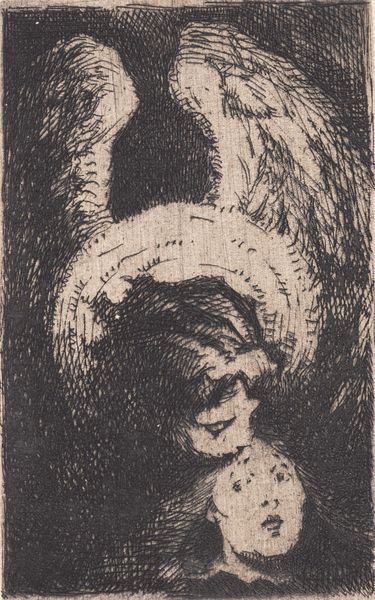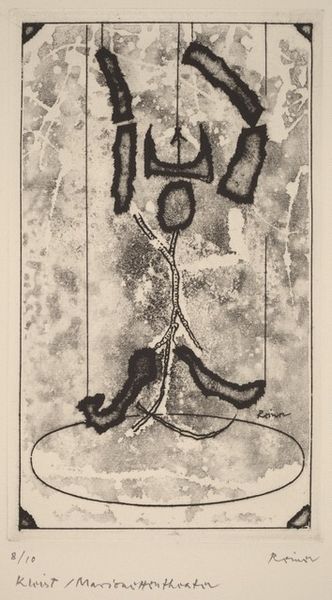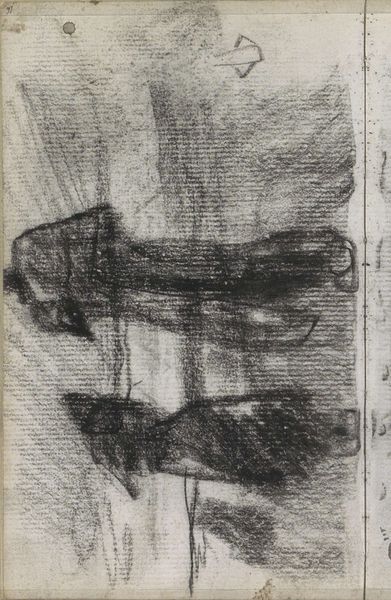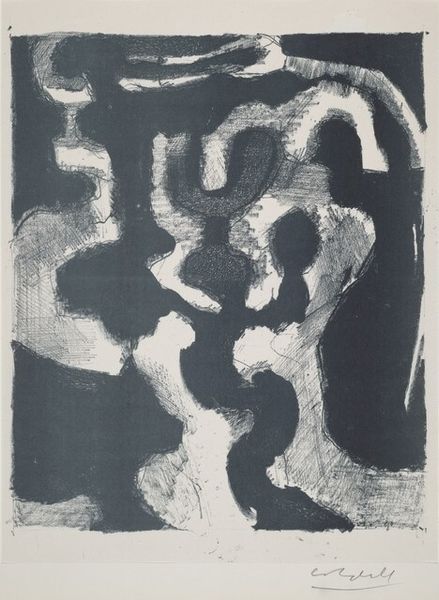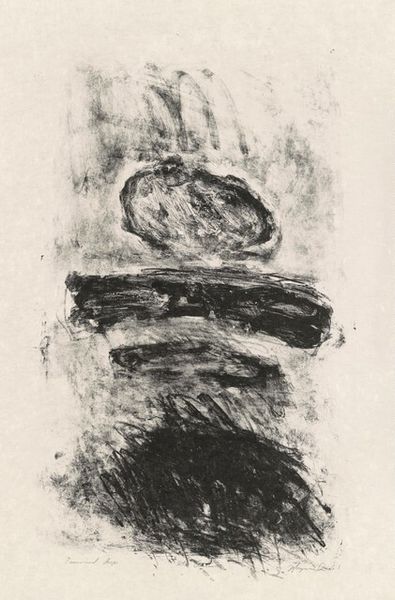
Copyright: Public domain
Vajda Lajos created this work, “Icon-Female Head,” in 1937. In it, we see the image of a woman's face which carries echoes of religious iconography, specifically Byzantine religious art. Made in Hungary in the late 1930s, this work reflects the social conditions of interwar Europe and the rise of various ideological movements. The figure is an iconic image, a sort of blank slate for cultural projections. While it's difficult to label this work as overtly conservative or progressive, the artist is challenging the established art world and engaging with folk art. Historians can consider this piece from several points of view. Studies of the artist’s life, Hungarian art history, and the influence of different movements such as expressionism and surrealism are all valuable tools to unpack the cultural and institutional contexts of this work. It offers a compelling example of how art can serve as a mirror to the complex social forces of its time.
Comments
No comments
Be the first to comment and join the conversation on the ultimate creative platform.
